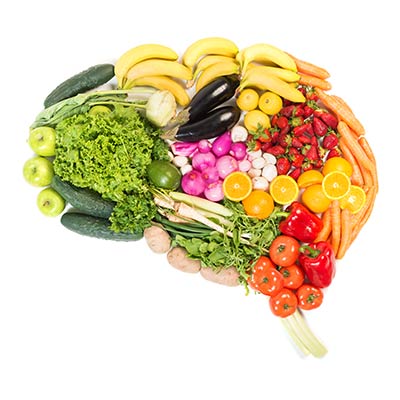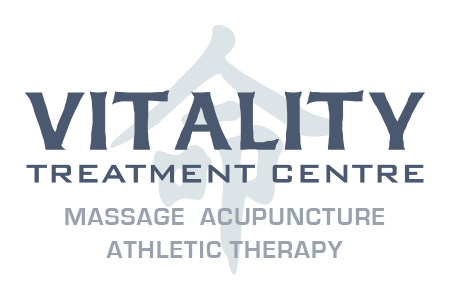Trouble viewing this message? View Online.

Winter 2019
We hope you survived the snowstorm, healthy and happy.
In this issue:
- Team Updates
Introducing Registered Massage Therapy practitioners, Desiree deRuiter (Locum for Maegan Chase) and Jacqueline Golsby, both starting in March. - What is Myofascial Release?
Both Desiree and Jacqueline, as well as several of our other RMTs, offer Myofascial Release. - 2019 Health Trends Spotlight: Nutrition & The Brain
Your brain may just be the organ that suffers most from poor diet.
Team Updates

Desiree deRuiter, RMT
Locum for Maegan Chase
Desiree graduated from the West Coast College of Massage Therapy in 2018. As an RMT, Desiree has extensive interest in Myofascial Release related to injuries and scar tissue, as well as systemic and neurological conditions.
Read Desiree's full bio »
Desiree begins at Vitality this Saturday, March 2nd.

New Practitioner
Jacqueline Golsby, RMT
Jacqueline is the newest addition to the Vitality Treatment Centre team. She graduated in 2012 from Utopia Academy (now VCMT) after working for 15 years as a professional sea kayak guide ranging from Haida Gwaii to Belize. Perceptive, energetic and knowledgeable, she was drawn to massage therapy as a way to give people the ability to continue to enjoy the activities they love to do.
Read Jacqueline's full bio »
Jacqueline begins at Vitality Wednesday, March 13th.
What is Myofascial Release?
Both Desiree and Jacqueline, as well as several of our other RMTs, offer Myofascial Release, which is generally an extremely mild and gentle form of stretching that has a profound effect upon the body tissues.
The therapist applies gentle, sustained pressure into the fascial system comprised of compression, traction, twisting, or moving of a particular body part. Fascial restrictions can exert tremendous tensile forces on the neuromuscular-skeletal and other pain sensitive structures. Release of the pressure of the fascial system around the muscles, nerves, blood vessels and the osseous structures creates a free mobile environment, relieving pain and restoring functional mobility.

2019 Health Trends Spotlight:
Nutrition & The Brain
excerpts from Mind Body Green
Brain Busting Factors
It's well documented that brain health can be affected by an unhealthy diet, poor sleep, air pollution, overuse of technology, and other lifestyle factors. What you eat and do affect your mental capacities, and your brain may just be the organ that suffers most from a poor diet in the long run.
Alzheimer's Disease: Diabetes Type 3
It's a shocking statistical reality: If we live to 85, almost half of us will develop Alzheimer's Disease. As the fastest growing epidemic in North America, health care systems are projected to be overwhelmed by the cost of this disease alone by 2050. Alzheimer's is now being referred to as Type 3 Diabetes, as research shows insulin resistance is a major contributor to oxidative brain damage, cognitive decline, and other types of neurodegeneration.
Brain Boosting Nutrition
"It's a simple and irrefutable premise: the brain receives nourishment strictly through the foods we eat every single day," states Lisa Mosconi, Ph.D., author of Brain Food.
Cut sugars, but carbs are not the enemy. A detailed study of the diets of people over 100 years old finds that 80% of their caloric intake comes from carbs, but it's all vegetables, fruit, legumes and whole grains, brown rice, oats and sweet potatoes – low on sugar and high in fibre and nutrients. Max Lugavere, health science journalist and author of Genius Foods, recommends eating all the colorful foods – everything from "plant pigments like lycopene, beta-carotene, and zeaxathin; to marine carotenoids like astaxanthin; to the anthocyanins in blueberries and red onions." He explains that beyond being beneficial to the brain, these compounds help to "shield our eyes and skin against oxidative stress and aging."
Eat good fats for brain health. The brain is nearly 60% fat and Essential Fatty Acids (EFAs), particularly omega-3 fatty acids, are required for brain function, but must be obtained from dietary souces such as cold-water fatty fish like salmon, trout, bluefish, sardines, and anchovies; and plant-based sources of olive oil, flaxseeds, chia seeds, walnuts and peanuts. Avocados (75% monounsaturated fat, high in folate and potassium) and coconut oil (65% medium-chain triglycerides) are also demonstrating brain health benefits.
Reduce inflammation by cutting any foods to which you have sensitivities by trying an elimination diet. Dairy, gluten/wheat, and soy are common culprits. Incorporating tumeric can help actively soothe inflammation. Intermittent fasting can also give your gut a break.
Drink a lot of water. The brain is 80% water and every chemical reaction occuring in the brain requires water. The brain is so sensitive to dehydration that even a slight decrease can cause symptoms of brain fog, fatigue, and dizziness.
Beyond Food
Learn something new. Music, art, languages, puzzles and memory games all help strengthen and retain neural pathways. Disconnect from tech to retrain your attention span, focus and mental clarity by getting out in nature, alone or with others. Connect with friends and loved ones to maintain and grow your support network. Reduce and manage stress, directly reducing cortisol levels, with relaxation activities like yoga, meditation and massage.
Read the full articles:
- Brain Fog Isn't Just In Your Head
- Of All The Organs, The Brain Suffers Most From A Poor Diet
- 11 Wellness Trends To Watch In 2019
Books on Brains
Open 7 days/week –
250.370.1020 vitalitytreatment.ca
